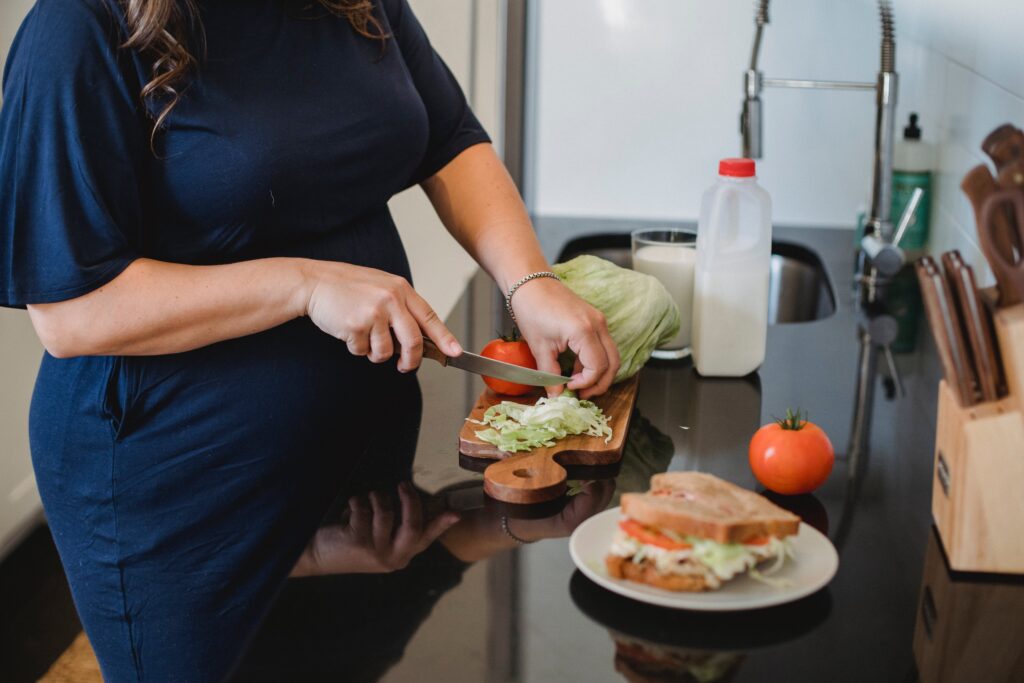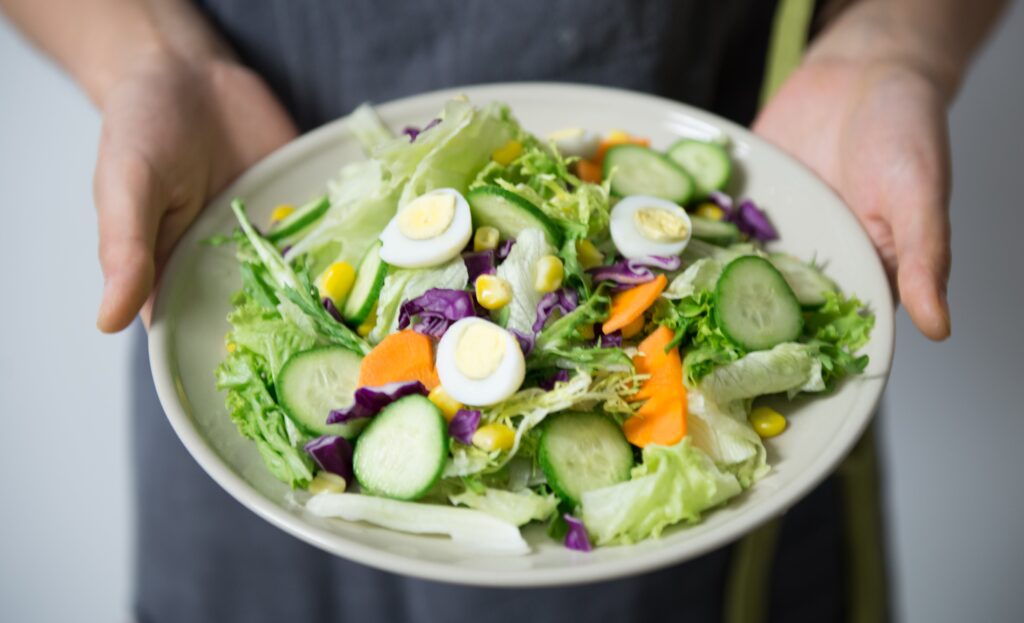Pregnancy is a miraculous and transformative journey in a woman’s life. One of the most crucial aspects during this period is ensuring a well-balanced and nutritious diet. A thoughtful pregnancy diet plan not only supports the health and development of the growing baby but also sustains the well-being of the expectant mother. Let’s delve into the essential components of a comprehensive pregnancy diet plan.

Foundation of a Healthy Pregnancy Diet:
1. Folate-Rich Foods:
Importance: Folate is vital for the early development of the baby’s neural tube.
Inclusion: Leafy greens, legumes, citrus fruits, and fortified cereals.
2. Calcium Sources:
Importance: Calcium aids in the development of the baby’s bones and teeth.
Inclusion: Dairy products, leafy greens, tofu, and fortified plant-based milk.
3. Protein Power:
Importance: Protein supports the growth of the baby’s tissues and organs.
Inclusion: Lean meats, poultry, fish, eggs, dairy, legumes, and nuts.
4. Iron-Boosting Foods:
Importance: Iron is crucial for preventing anemia in both the mother and baby.
Inclusion: Lean meats, poultry, fish, iron-fortified cereals, and dark leafy greens.
5. Omega-3 Fatty Acids:
Importance: Omega-3s contribute to the baby’s brain and eye development.
Inclusion: Fatty fish (like salmon), chia seeds, flaxseeds, and walnuts.
6. Whole Grains:
Importance: Whole grains provide essential nutrients and fiber.
Inclusion: Quinoa, brown rice, oats, and whole wheat products.
7. Colorful Fruits and Vegetables:
Importance: Rich in vitamins, minerals, and antioxidants.
Inclusion: A variety of fruits and vegetables in different colors.

Pregnancy Diet Plan:
First Trimester:
During the initial months, focus on addressing nausea and ensuring adequate nutrient intake.
Morning Sickness: Opt for small, frequent meals and keep crackers or dry snacks on hand.
Hydration: Drink plenty of water and incorporate ginger or peppermint tea for nausea relief.
Supplements: Begin prenatal vitamin supplements as recommended by your healthcare provider.
Second Trimester:
As the baby’s development accelerates, prioritize nutrient-dense foods.
Protein Intake: Ensure sufficient protein for the baby’s growth spurts.
Calcium Boost: Emphasize calcium-rich foods for bone development.
Fiber Intake: Combat constipation with fiber from fruits, vegetables, and whole grains.
Third Trimester:
In the final stretch, focus on energy-boosting foods and preparations for labor.
Iron-Rich Foods: Prevent anemia with iron-containing foods.
Healthy Fats: Include omega-3 sources for brain development.
Hydration: Maintain optimal water intake for amniotic fluid and hydration.

Crafting a pregnancy diet plan involves mindful choices that nurture both the expectant mother and the precious life growing within. Consult with healthcare professionals and a registered dietitian to tailor the plan to your individual needs. Embrace the journey with a commitment to nourishing your body and celebrating the remarkable phases of motherhood.
For more information visit :https://englishbeauty.co.uk/
FAQs
Can I continue to exercise during pregnancy?
In most cases, moderate exercise is beneficial. However, always consult your healthcare provider before starting or continuing an exercise routine.
How much weight should I gain during pregnancy?
Weight gain recommendations vary, but your healthcare provider will guide you based on your pre-pregnancy BMI.
Are there foods to avoid during pregnancy?
Limit caffeine, avoid raw or undercooked seafood and meats, and steer clear of unpasteurized dairy products.
Can I follow a vegetarian or vegan pregnancy diet?
Yes, a well-planned vegetarian or vegan diet can provide all the necessary nutrients. Consult a dietitian for guidance.
Is it necessary to take prenatal vitamins?
Prenatal vitamins help ensure you get essential nutrients. Consult your healthcare provider for personalized recommendations.

